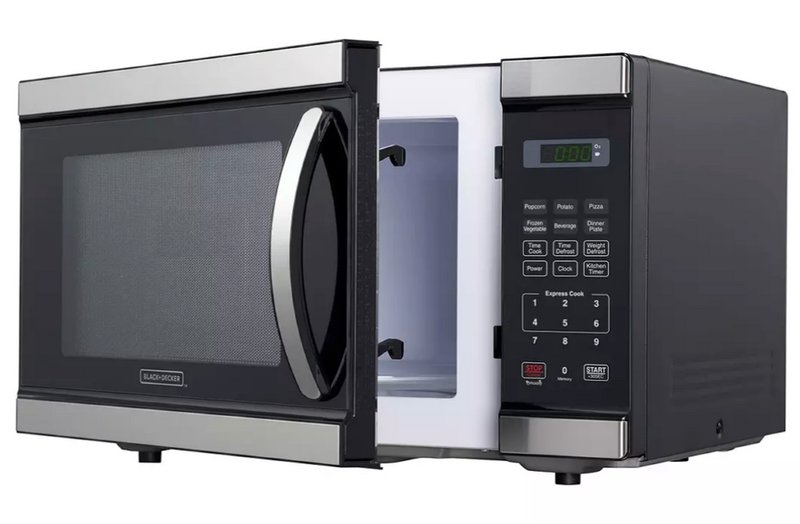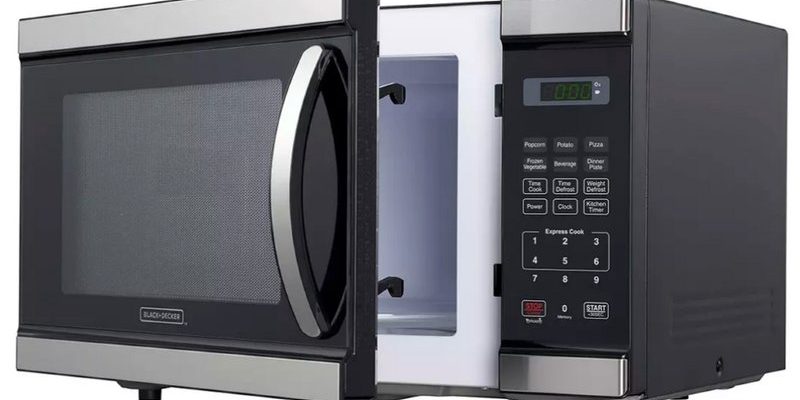
Think of it this way: owning a microwave is like having a trusty kitchen buddy. It warms your leftovers, helps with quick meals, and occasionally saves the day when you forget to defrost dinner. But just like any appliance, it can sometimes act up or stop working altogether. The question is, do those occasional breakdowns happen often enough to justify spending extra money on an extended warranty, or is it smarter to take your chances and save that cash for something else?
Let me explain what an extended warranty actually covers for Black+Decker microwaves, the typical lifespan of these devices, and what you should consider before deciding if that extra peace of mind is truly worth it.
What Does an Extended Warranty Cover for Black+Decker Microwaves?
An extended warranty for your Black+Decker microwave is essentially a service agreement that kicks in after the manufacturer’s standard warranty ends. Typically, Black+Decker microwaves come with a 1-year limited warranty that covers defects in materials or workmanship. But once that year is up, the extended warranty can cover repairs or even replacements due to breakdowns or malfunctions.
Here’s the thing: different warranties cover different scopes. Some extended plans cover just mechanical and electrical failures, while others might include issues like parts replacement, labor, or even accidental damage. It’s important to read the fine print because not all extended warranties are created equal. For instance, many extended warranties won’t cover damage caused by misuse or neglect, and they usually don’t cover normal wear and tear.
You might be wondering: if the microwave stops heating or the control panel freezes, will the extended warranty have my back? Usually, yes—these are the kind of internal problems that extended warranties tend to cover. But it won’t cover things like cracked doors if you drop it or cosmetic scratches, so the scope can be a bit limited depending on the provider.
How Long Do Black+Decker Microwaves Usually Last?
Understanding the typical lifespan of a Black+Decker microwave helps you weigh whether an extended warranty makes financial sense. Honestly, most microwaves, including Black+Decker models, last around 7 to 10 years if you take decent care of them.
Think of it like a well-maintained car—the better you treat it, the longer it’ll run without major issues. Simple things like keeping the microwave clean, making sure the door seal is tight, and not overloading or running it empty can extend its life. If your microwave is on the cheaper side, it might not be designed for heavy-duty use, so it may start acting up sooner.
So, if you’re offered a 2- or 3-year extended warranty after the first year, you’re potentially covered for the “middle years” of the appliance’s life. But since microwaves tend to either work fine or fail suddenly toward the end of their natural lifespan, some people feel it’s better to put money aside for a new unit instead of the warranty.
Common Problems That Extended Warranty Can Help With
You might be curious about what exactly can go wrong with a Black+Decker microwave that’s worth insuring. Here’s the deal: microwaves are generally simple machines, but they do have parts that can fail over time.
- Turntable motor issues: The plate stops rotating, which affects even cooking.
- Control panel failures: Buttons that stop responding or displays that flicker.
- Magnetron problems: The core component that generates microwaves might burn out, causing poor heating.
- Door latch or seal damage: Which can make the microwave unsafe to use.
- Electrical failures: Faulty wiring or power supply issues that prevent the microwave from turning on.
If any of these happen after the manufacturer warranty expires, an extended warranty can save you from costly repairs or buying a new microwave altogether. But here’s a kicker: repairs on microwaves, especially basic ones, can sometimes be nearly as expensive as a new unit, so it’s good to compare repair costs against replacement prices.
How Much Does an Extended Warranty Typically Cost?
Let’s get real about price. Extended warranties for Black+Decker microwaves usually cost between $20 and $60, depending on the length and coverage level. That might not seem like much compared to the price of the microwave itself, which often ranges from $50 to $150.
Here’s the catch: if your microwave is on the lower end of that price scale, you could end up paying almost half its value for extra warranty coverage. You might think, “Wait, should I just skip this and save the money for a new microwave?” In many cases, that’s a totally reasonable approach.
But if you’re investing in a higher-end Black+Decker model with more features, or if you’re someone who just hates dealing with repairs or troubleshooting problems, the cost might feel worth it for the peace of mind.
When Does Buying an Extended Warranty Make Sense?
Honestly, the decision to get extended warranty coverage boils down to your own risk comfort and use habits. Here are some cases where buying an extended warranty can be a smart move:
- You use your microwave heavily: Daily use puts more wear and tear on parts, increasing the chance of failure.
- You’re not comfortable with DIY troubleshooting: If opening the microwave to check the fuse or reset the control panel sounds scary, having a professional fix it for free might be worth the cost.
- The warranty covers accidental damage: Some plans protect against drops or spills, which regular warranties don’t.
- You want hassle-free repairs: Extended service plans often include in-home repairs or convenient replacement options.
If, on the other hand, you’re pretty handy or don’t mind replacing a cheap microwave every few years, skipping the warranty can save you money.
Alternatives to Extended Warranty for Your Microwave
If an extended warranty feels like overkill, what else can you do to protect your Black+Decker microwave investment?
- Keep it clean and maintained: Dust buildup and food spills can cause overheating or damage electrical components.
- Use it properly: Don’t run the microwave empty or overload it beyond capacity.
- DIY troubleshooting: Simple resets, checking fuses, or unplugging and plugging back in often fix common issues.
- Save for replacement: Instead of paying for a warranty, put aside a small amount monthly and buy a new microwave if something major happens.
- Look for better deals: Some credit cards or retailers offer built-in extended protection on purchases, which might cover your microwave for free.
These steps won’t cover every breakdown, but they can extend the microwave’s life and reduce the chance you’ll need costly repairs.
How to Decide If the Extended Warranty Is Right for You
If you’re still on the fence, here’s a simple checklist to help:
| Is your microwave expensive or feature-packed? | More likely worth warranty coverage |
| Do you rely on it daily or for important meals? | Warranty might save hassle and downtime |
| Are you comfortable troubleshooting or repairing small issues? | If yes, maybe skip it |
| Does the warranty cover more than manufacturer defects? | Accidental damage coverage adds value |
| Is the warranty cost a significant fraction of the microwave price? | If yes, probably not worth it |
Think about these factors like a pros and cons list over your morning coffee. It helps cut through the impulse to say “yes” just because it’s offered at checkout.
Wrapping It All Up
So, is an extended warranty worth it for Black+Decker microwaves? Honestly, it depends. If your microwave is a budget-friendly model and you’re okay with the occasional troubleshooting or outright replacement, you can probably skip it without regret. But if you use your microwave a lot, want to avoid hassle, or have a higher-end Black+Decker unit, the peace of mind might be worth the extra spend.
At the end of the day, microwaves are pretty straightforward appliances. A little care, some basic troubleshooting (like checking the fuse or resetting the unit), and knowing when it’s time to buy new can keep your kitchen firing on all cylinders without locking into extra costs. Whatever you decide, keep these points in mind as you weigh the options next time you’re eyeing that extended warranty at checkout. It’s all about what fits your lifestyle and how much risk you’re comfortable taking.
